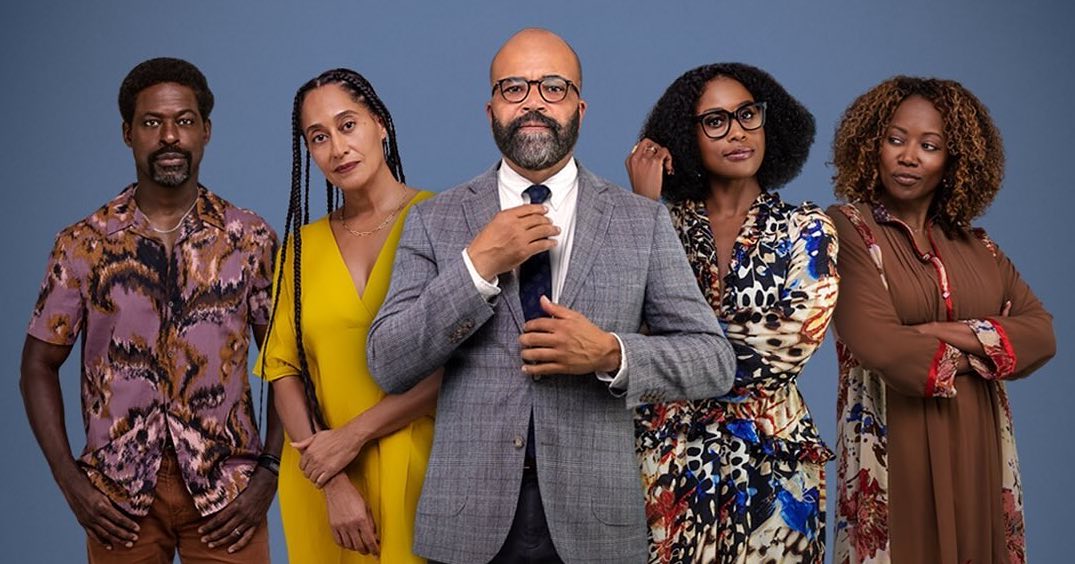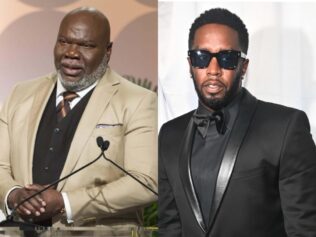With five major Oscar nominations to its name and a BAFTA win for Best Screenplay Adaptation, all the buzz that Cord Jefferson’s glorious directorial debut “American Fiction” has been making ever since its release is about to hit a magnificent crescendo.
A whip-smart, acutely self-aware, and outrageously entertaining dramedy about a frustrated Black professor-writer’s literary prank backfiring, it’s based on Percival Everett’s 2001 novel “Erasure.” Written for the screen by Jefferson, it’s the story of Thelonious Ellison (Jeffrey Wright), who goes by the name Monk, a writer of cerebral, academic books that don’t sell. Deeply annoyed at the largely white publishing industry’s refusal to look at the African-American experience beyond hood-lit or blaxploitation, obsessed with “deadbeat dads, rappers, crack” and their relentless “fiending of Black trauma porn,” he decides one night to “rub their noses in the horsesh-t they solicit.”

The result is “My Pafology,” a book underlining every stereotype about the Black community to an obscene hyperbole, penned by Monk under the pseudonym “Stagg R. Leigh,” an imaginary convict. “My Pafology” is Monk’s way of showing the middle finger to the literary industry hellbent on limiting the complex identities of his people to race and race alone. However, to his shock, an elite white publishing house doesn’t just lap it up at face value. They offer him a ridiculous $750,000 advance for it. A prominent Hollywood director even approaches him for a movie adaptation. Soon, the career that he’d been working meticulously to build for decades snowballs, but in an entirely unexpected fashion.
“American Fiction” is a caustic commentary on how we’ve fostered a culture that loves to strangle people in boxes, hammering the fullness, richness, and diversity of our human experience into a banal category. But Jefferson wrests with all his might. His protagonist may have unwittingly written the definitive novel of a genre he abhors. However, Jefferson makes no such folly. He ensures his film is about a lot more than the obvious racism. Along with Monk’s professional disillusionment runs a parallel track of his highly educated, upper-middle class family in turmoil.
The way Jefferson seamlessly fuses the two dimensions of Monk’s life is reminiscent of the recent Andrew Scott film “All of Us Strangers” (2023). It’s a heart-shattering portrait of a lonely screenwriter who begins to meet his dead parents in his old childhood home and talk to them about all the things he never could because they were killed in a car crash when he was only 12. Around the same time, he also begins to open up and fall for a young man who lives in the same building as him. A terrific psychological fantasy directed by debutant Andrew Haigh, “All of Us Strangers” plays out like a fever dream, one that will haunt you in moments unexpected.
Although an entirely different, sharply subversive, and categorically humorous film, “American Fiction” hits you just as hard. It more than deserves all its five Academy Award nominations. Jefferson has whipped a tragi-comedy for the ages. A former journalist, he has previously written for a slew of highly acclaimed television shows — “Succession” (2018-2023), “The Good Place” (2016-2020), “Master of None” (2015-2021) — and won an Emmy for his work on HBO’s “Watchmen” (2019).
In “American Fiction,” his mighty prowess with the pen hands you a mirror to reflect within, egging you to question your deep-seated biases. The film’s dialogue deserves a detailed analysis of its own. It’s bitingly clever, razor-sharp, unflinchingly honest, and brimming to the full with irony and effervescence.
Several scenes stand out. There’s one in which Monk is pounding away “My Pafology” late at night. As he types in the dialogue, his characters — a father and a son — jump out of the page, into the room, and start playing out the scene. Then there are all of the conversations that he has on the landline with his white editors, each one more uproariously stupid than the previous one. Another standout is the sparring discussion that he has with celebrity author Sintara Golden (Issa Rae), a fellow Black writer who, according to him, has pandered her way to popularity.
It’s difficult to imagine anyone besides Wright playing the prickly, snobbish Monk. There’s so much tumult inside and around him that he would have crumbled in the hands of a lesser actor. But Wright plays him with such assured restraint that it’s a delight to watch him unravel, become the butt of his own joke, unlearn, then learn some, and loosen his tight arse. It’s a brilliant, career-defining performance, one that merits not just critical acclaim but also the shining, golden trophy.
“American Fiction,” which is currently up for Best Picture, Best Actor, Best Supporting Actor, Best Original Score, and Best Adapted Screenplay at the 2024 Academy Awards, features an all-star cast: Jeffrey Wright, Sterling K. Brown, Tracee Ellis Ross, Erika Alexander, Issa Rae, and Leslie Uggams. The film is now showing in theaters and available for rent on Prime Video.


